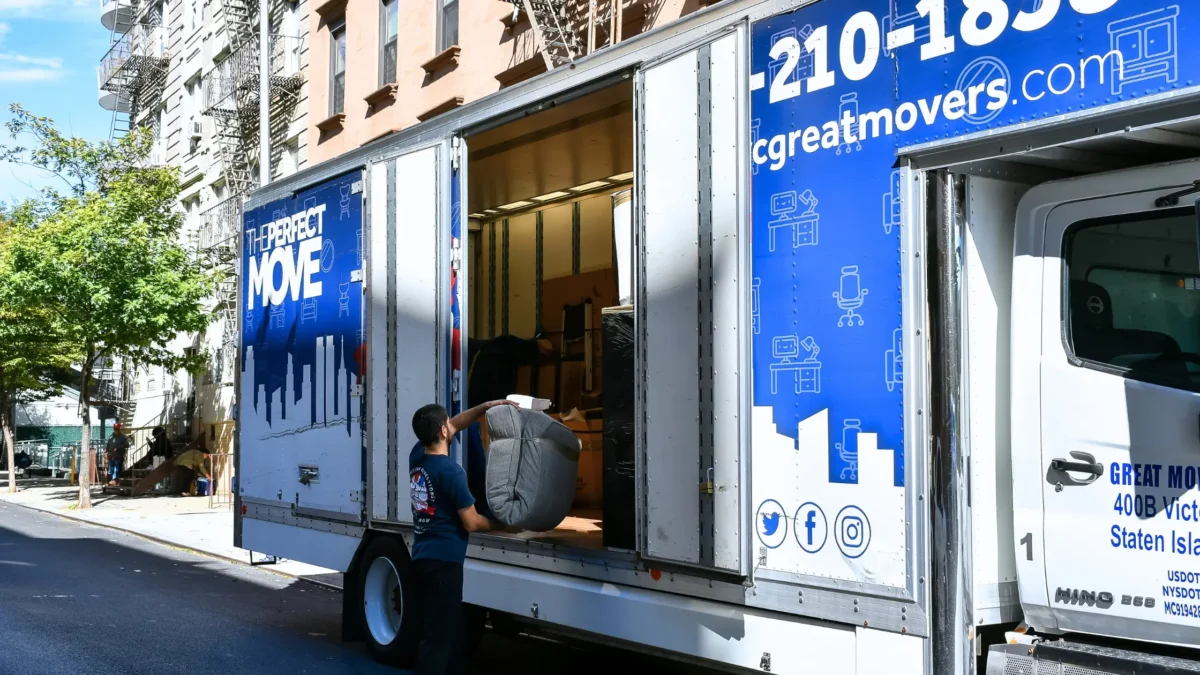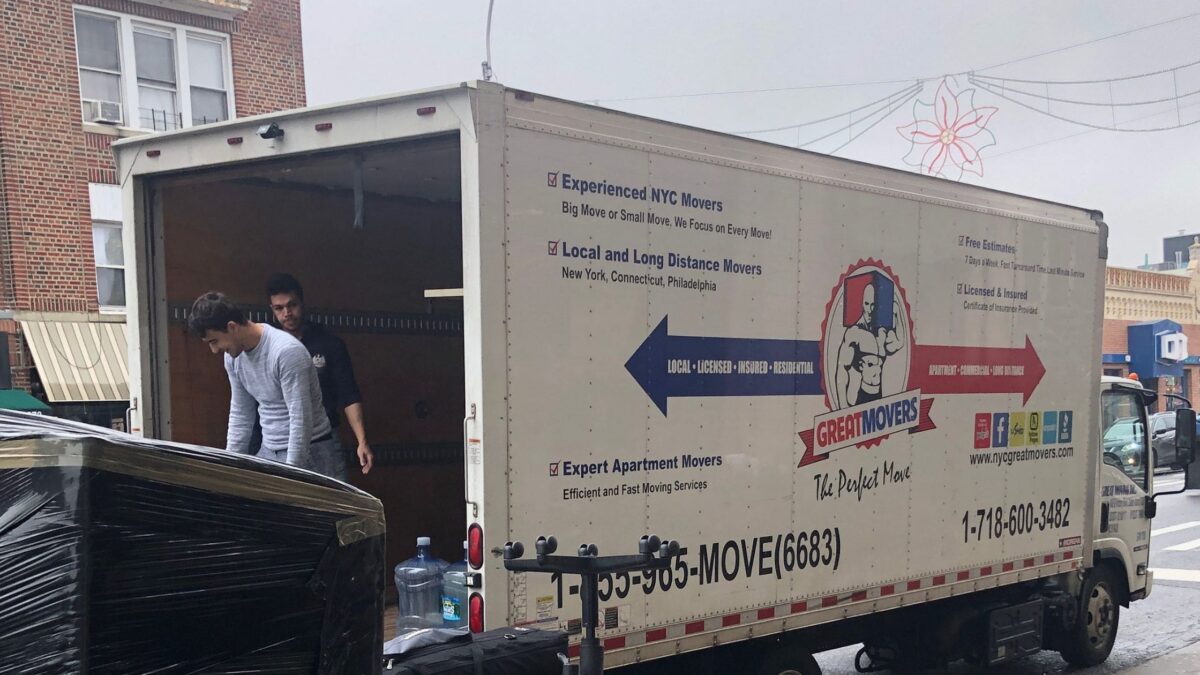Moving for work can be both exciting and stressful. There are so many details you need to consider especially if you’re moving across state lines. But even if you’re making a local move, the point remains that you want to be as organized as possible. After all, moving for work is different from your standard move where you will likely have more time to pack and unpack. With a job lined up first, your timeline is a lot shorter since you’ll need to find a place before you start at your new job. Whether you have three months or three weeks for your NJ move, the guide below can help make your transition as easy as possible.
Ask Your Company About Relocation Assistance
If you didn’t get a chance to negotiate relocation assistance during your job offer, it’s not too late to do so even after the fact. Simply reach out to the HR representative that you have been talking to and see if they can reimburse you for some moving expenses. While not all companies will offer you something, many will provide between $20,000 to $100,000 to help make your move easier. After all, they are the ones who want you to move to a new location! Even if they say no, you can simply thank them and move on. Your job is still yours!
If you’re still uncomfortable about broaching the topic, don’t worry. There are still plenty of ways you can reduce your moving costs. It all depends on how far you’re moving and how much elbow grease you want to put in yourself. While a completely DIY route might end up being cheaper, it will take you longer and could lead to damaged belongings or personal injury. For that reason, you should hire professional NJ movers. While it might cost you more, it will save you a lot of time and reduce your overall stress.
Make a Budget
Whether you get relocation assistance from your company or not, creating a budget for your move is imperative. There are a lot of little things you might need to purchase for a move and it’s all too easy to just put the charges on your credit card and forget it. However, this can lead to a huge sticker shock when you get your statement for the month. Creating a budget gives you the opportunity to really break down the costs and decide what you can afford to buy now or later. Make sure to create line items for every aspect of the move including:
- Cost of hiring movers (don’t forget to include the tip) or renting a truck
- Packing materials and supplies
- Gas for your car
- Buying new items for your new home
- Takeout before and after the move
- Essentials for the first month
And so on. Get as granular as possible and do your research by going online and finding prices on basic goods at nearby groceries and shops. Once you have your total, add an extra 15-20% on top of that for the first month as there are always things you’ll forget. If you’re moving from overseas, plan a larger bump, around 50 to 100% more than you would for a domestic move.
Make Lists for Everything
Lists are a great way to keep track of everything you need to get done for your move. There are so many large and small tasks you need to complete, you really don’t want to rely on your memory as you’ll definitely forget something. Much like your moving budget, get specific. Break down every task into smaller items. For example, instead of just listing out packing, you can separate it by room. Some other items to include are:
- Declutter (by room)
- Send out change of address for post office, financial institutions, health insurance, friends and family, etc.
- Transfer utilities
- Fill out transfer request information for kids
- Get all necessary health documents for everyone in your family
- Research and book movers
And so on. A great complement to lists are spreadsheets. For example, an item on your moving checklist might be to turn off all of your utilities at your old house. That could link to a spreadsheet listing out every utility, the appropriate url or phone number to call, and even the billing cycle. On that same spreadsheet, include the same information for your new house to ensure you have everything working when you move into your new place.
And speaking of spreadsheets, make sure to keep a well-maintained inventory of everything you plan on taking with you. This is especially important if you plan on hiring a NJ moving company as you want to ensure all of your boxes arrive safely. The inventory should include the type of item you are moving, quantity, a brief description including any current damage, and pictures especially of fragile and/or high value items. That way, should anything be damaged or go missing, you have documentation.
Locate the Essentials
The last thing you want to do on your first day of work is be late. So take some time to figure out the best driving route from your home to your new job location. Do a couple dry runs to see what the easiest and fastest options are. If you have public transportation nearby, see if that might be a better option than driving. Don’t depend on just one route to get to work! There might be heavy traffic due to an accident so you find alternative routes that might allow you to avoid potential traffic jams. While you’re driving around, keep your eyes peeled for other essentials like a grocery store, gas station, shopping centers, and so on.
Speaking of essentials, make sure you can pack moving essentials into a separate box from the rest of your belongings. Pack your essentials bag or box like you would for a two to three day hotel stay. You want things like your toothbrush, clothes, toiletries, etc. easily accessible. If you’re going to work immediately after a move, make sure to have your work clothes in a garment bag to prevent wrinkling.
As well, stock up on staples before your first day in the office. Coffee, milk, eggs, cereal, and lunch items are a great option to have on hand to keep your costs down. And don’t forget to pick up a favorite bottle of wine or beer so you can relax after a long day.
Set Up Necessary Appointments as Early as Possible
Whether you need to go to the DMV to update your license or stop by your child’s school to make sure their enrollment is in order there are plenty of post-moving tasks that will require you to be away from your desk. As much as you can, arrange for these appointments to happen as early as possible and all at once to avoid being out too many days in a row. That way, you can avoid being off the clock too often during your first month.
Of course, life doesn’t always go as planned and some things may end up getting delayed. As much as possible, give your manager and team a heads up so they know your whereabouts and availability as soon as possible. This will reduce stress on both sides!
Plan Your NJ Move
There’s a lot involved with job related relocation and you don’t always have as much time as you might like. With that said, there are plenty of ways to stay organized and, if you need more help, you can always reach out to NJ Great Movers. We can help you with almost every moving task such as packing, unpacking, and more. Reach out to us and we’ll go over how we can best suit your needs and budget.



